What are causes of polarizing labor market trends?
The labor market is currently dominated by divergent trends. On the one hand, we have enormous technological progress and innovation as well as record high profits of large corporations, which are competing for the best talents with attractive wages and new work models. On the other hand, we have rising prices, a declining labor’s share of GDP, stagnating wages, especially those of middle-class workers, resulting in a polarization of the labor market. What are the causes of these trends and what solutions from business and politics are needed to safeguard prosperity and counteract polarizing trends that are harmful to society? Answers to these and other important questions are provided by numerous experts in lectures, interviews, and papers made possible by the UBS Center.
The labor market is currently dominated by divergent trends. On the one hand, we have enormous technological progress and innovation as well as record high profits of large corporations, which are competing for the best talents with attractive wages and new work models. On the other hand, we have rising prices, a declining labor’s share of GDP, stagnating wages, especially those of middle-class workers, resulting in a polarization of the labor market. What are the causes of these trends and what solutions from business and politics are needed to safeguard prosperity and counteract polarizing trends that are harmful to society? Answers to these and other important questions are provided by numerous experts in lectures, interviews, and papers made possible by the UBS Center.
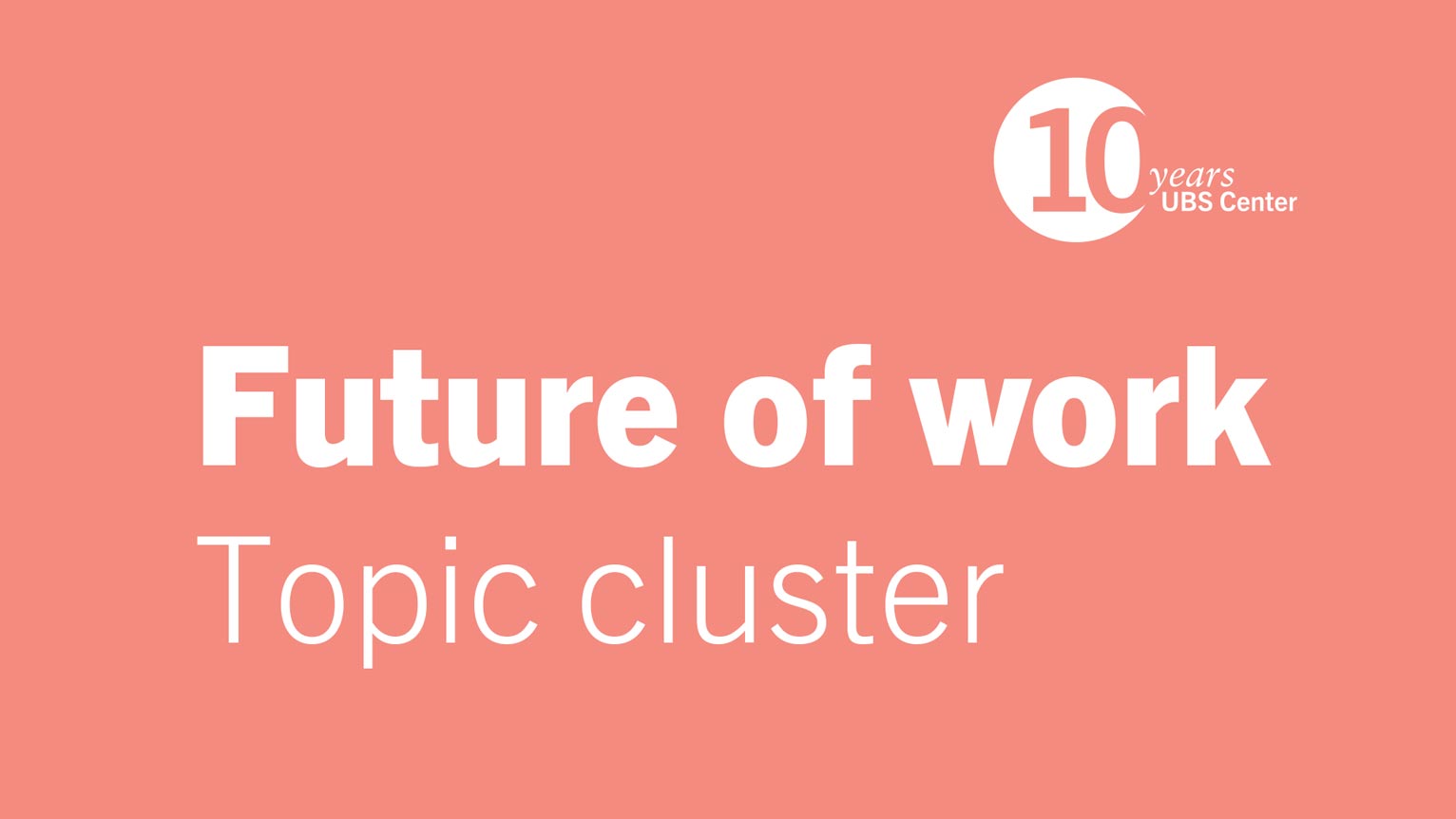
Quotes
Publications
The UBS Center offers two publication series. The Public Paper series makes research on topics of key social relevance available to a broader audience in a simplified, compact, and highly readable format. The Policy Brief series can give governments and businesses the rigorous and clear insights necessary for informed debates and decisions. They are a condensed and non-technical version of some of our top research papers.
Disappearing middle class – Job polarization and policy approaches
The creeping hollowing out of the middle class and the simultaneous rise of automation have become hotly debated topics in the popular media and among policymakers, and there is certainly no shortage of dire predictions about the ascent of robots and subsequent obsolescence of workers. But – doomsday prophecies aside – what are the facts? What is happening to workers, specifically middle-class ones? And, from a policy perspective, what can (or should) be done to address this fundamental shift in who – or what – does which jobs? Public Paper No 8 by Nir Jaimovich tackles these questions head-on.
The Rise of the Machines – How Computers Have Changed Work
The so-called “Rise of the Machines” has fundamentally transformed the organization of work during the last four decades. While enthusiasts are captivated by the new technologies, many worry that these machines will eventually lead to mass unemployment, as robots and computers substitute for human labor. Public Paper No 4 by David Dorn shows that these concerns are likely to be exaggerated.
The rise of superstar firms – Market concentration and labor’s falling share of GDP
Over the past 30 years, labor’s share of GDP in industrialized countries has fallen. This means that a declining fraction of aggregate income is going to workers, while firm owners obtain more. Policy Brief No. 1/21 by David Dorn explains this phenomenon by identifying so-called ‘superstar’ firms as drivers of the falling labor share.
Impact of parental leave on companies – Taking time off to give birth has scant effect on small companies in Denmark
Most of the existing evidence on the effectiveness of family leave policies stems from research on the impact on the families concerned – mothers, fathers, and their offspring – rather than the effects and costs on employers or fellow workers. By contrast, Policy Brief No 2/21 by Anne Ardila Brenøe examines the consequences of a female worker giving birth and taking parental leave on her employer and co-workers. Focusing on Denmark, a wealthy country with generous parental leave benefits, it shows there is little evidence of negative effects on either the employing company or co-workers.
The end of men – Growing demand for women’s social skills in high-paying jobs
Demand for high-skilled workers who perform cognitive tasks has increased dramatically in the United States over the past four decades, with the biggest change between 1980 and 2000. Policy Brief No 1/18 by Nir Jaimovich shows that the increase in demand was not experienced equally by both genders: despite rapid growth in employment in high-paying occupations, the probability that a college-educated man was employed in such a job fell, while the prospects for college-educated women improved.
The UBS Center offers two publication series. The Public Paper series makes research on topics of key social relevance available to a broader audience in a simplified, compact, and highly readable format. The Policy Brief series can give governments and businesses the rigorous and clear insights necessary for informed debates and decisions. They are a condensed and non-technical version of some of our top research papers.
Disappearing middle class – Job polarization and policy approaches
The creeping hollowing out of the middle class and the simultaneous rise of automation have become hotly debated topics in the popular media and among policymakers, and there is certainly no shortage of dire predictions about the ascent of robots and subsequent obsolescence of workers. But – doomsday prophecies aside – what are the facts? What is happening to workers, specifically middle-class ones? And, from a policy perspective, what can (or should) be done to address this fundamental shift in who – or what – does which jobs? Public Paper No 8 by Nir Jaimovich tackles these questions head-on.
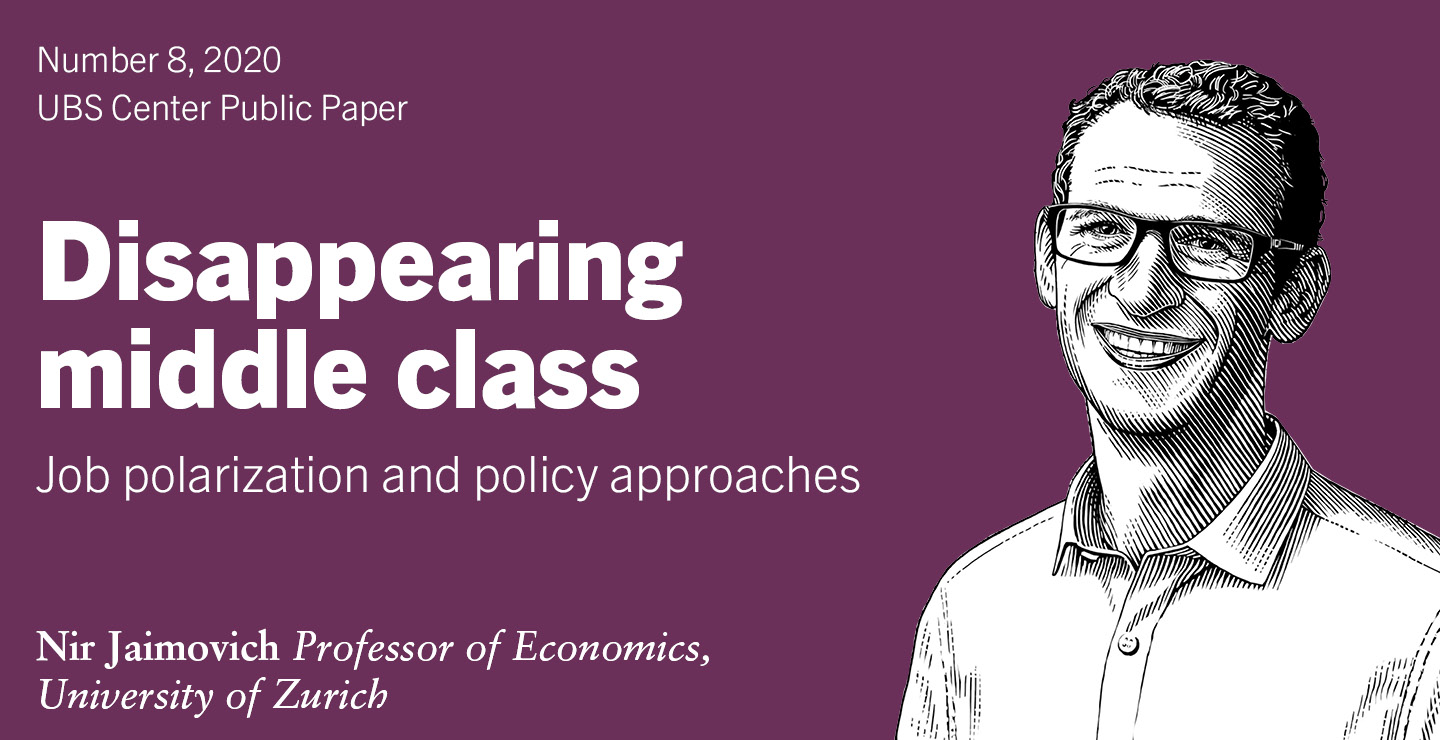
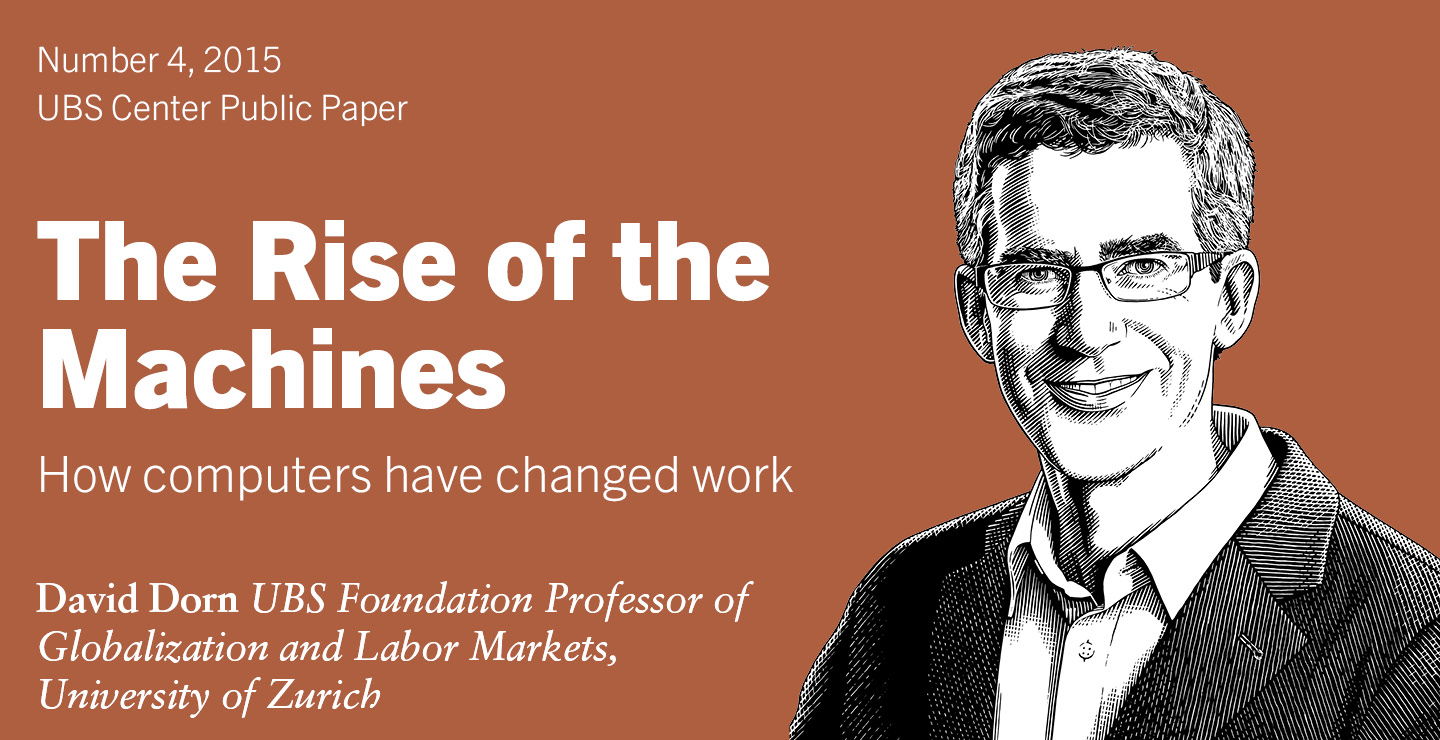
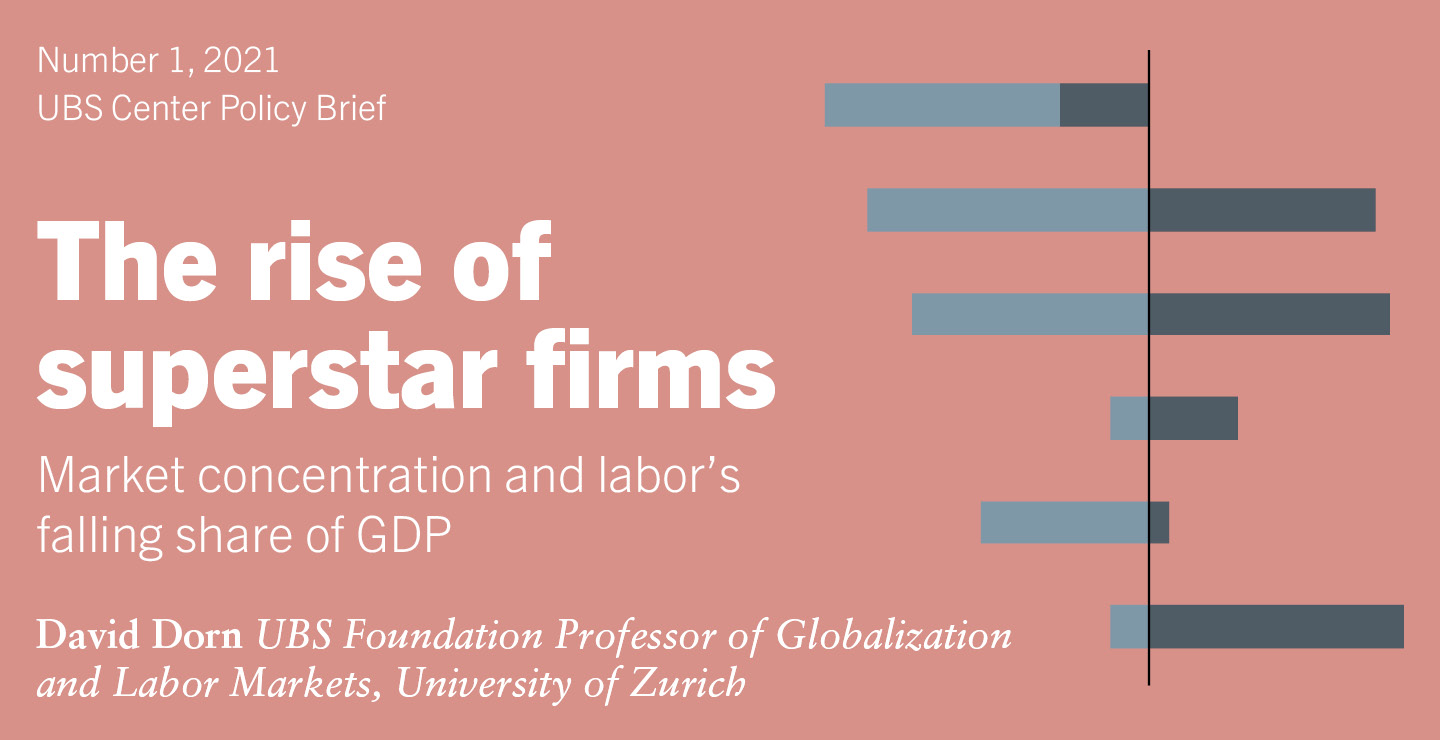
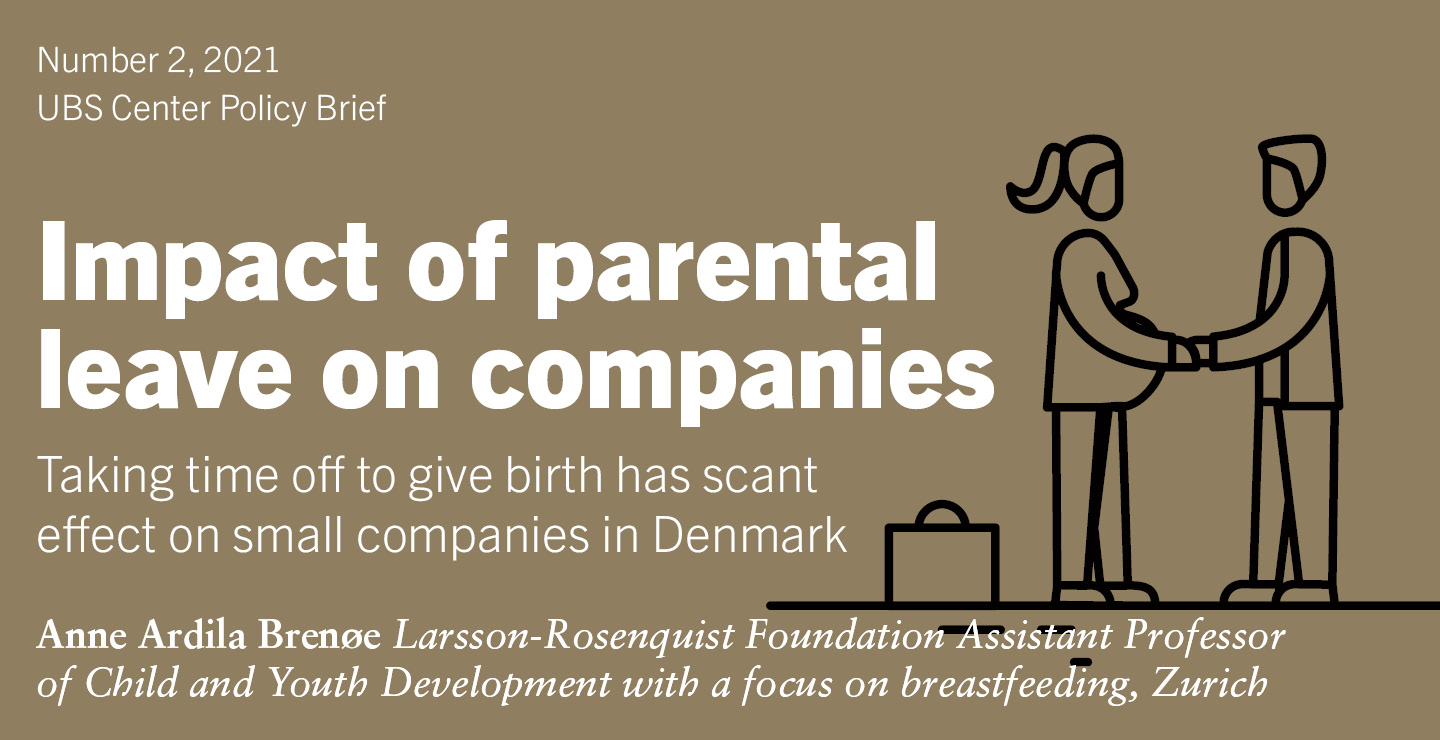
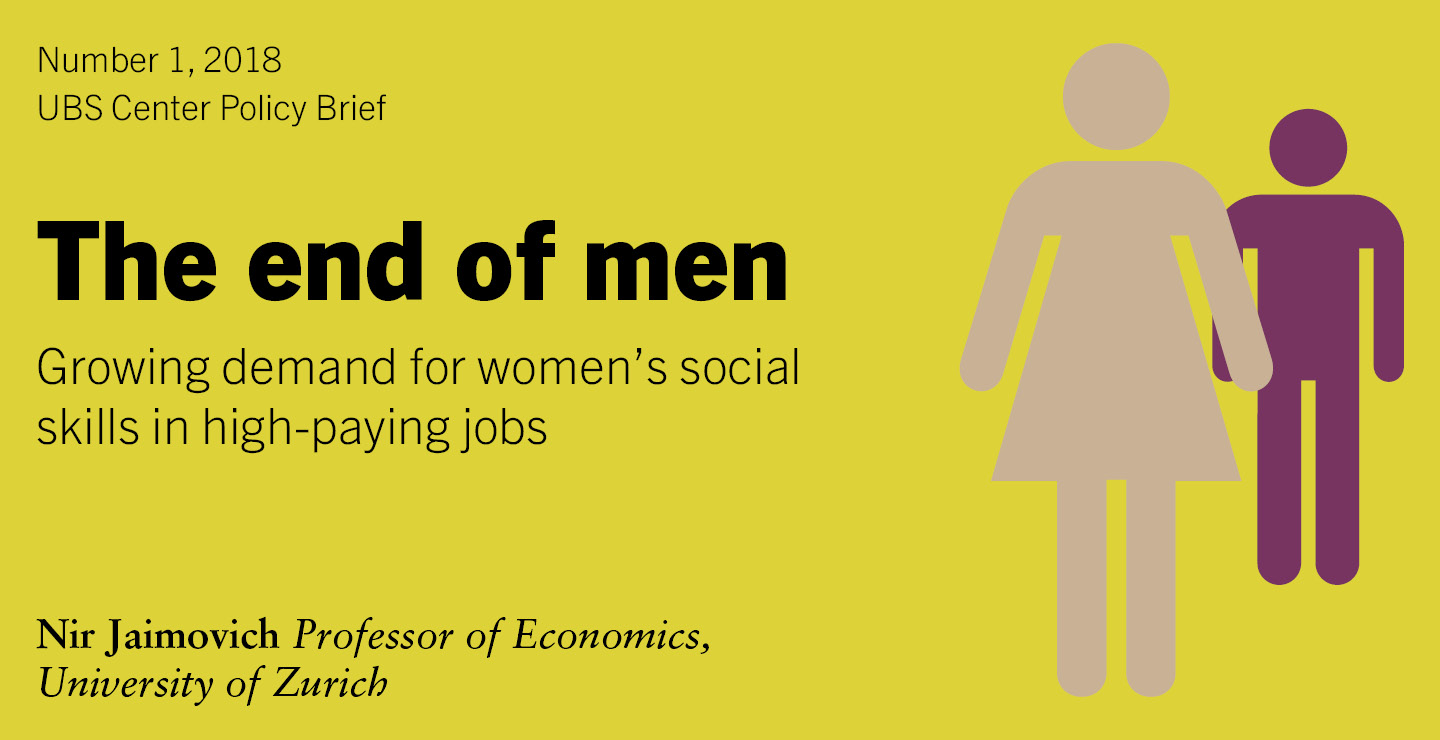
Event highlights
The Center’s events come in different formats, including two annual conferences with leading representatives from the academic, private, and public sectors debating a key contemporary economic issue. The Opinion events feature top representatives from academia to voice their views in public speeches. The Center hosted several events on the topic of labor market and the future of work in the past 10 years.
Switzerland and its 'grey matter' – UBS Center Podium 2015
What kind of human capital does Switzerland need? Where do we face shortages and where oversupply? Based on these insights, what type of education system would be best suited to produce such human capital? How is our human capital best deployed to maximize economic welfare in our country? Experts from science, business, and politics such as Mauro Dell’Ambrogio, Ulf Berg, Monika Bütler, Christian Dustmann, Walter Leimgruber, Gerhard Pfister, Rudolf Strahm, and Valentin Vogt discussed these and more questions at the UBS Center’s annual Podium, which took place in Zurich on June 23, 2015.
Learn more
The grey revolution – UBS Center Podium 2016
Life expectancy in Western societies increases while birth rates drop. There is a fifty-percent chance that a child born today in Switzerland will live to be 100 years old. What does this mean for the economy and for society? How can the pension system be secured? Experts from science, business, and politics, such as Axel Börsch-Supan, Jacqueline Fehr, Walter B. Kielholz, Alex Kuprecht, Bernd Raffelhüschen, Christoph Schaltegger, and Urs Schwaller discussed these and more questions at the UBS Center’s annual Podium, which took place in Zurich on April 21, 2016.
Learn more
The Rise of the Machines – UBS Center Forum 2016
An omnipresent internet, industrial robots, self-driving cars, augmented reality glasses, big data, artificial intelligence; chances are that we are currently undergoing the most fundamental wave of technological change mankind has witnessed – ever. The 2016 Forum for Economic Dialogue featured economists, entrepreneurs, philosophers, and technology experts from around the world who discussed whether, and if so how, the current wave of technological change will revolutionize the way our economy operates and how human beings participate in it. Panel speakers included Prof. Nick Bostrom, Dr. Alessandro Curioni, Prof. Jeremy Greenwood, John Martin, Prof. Joel Mokyr, Prof. Saskia Sassen, and Prof. Roland Siegwart. In addition to these sessions, the Forum featured keynote speeches by Jeremy Rifkin and Prof. David Autor.
Learn more
The Future of Work - UBS Center Opinion 2019
We were delighted to present the UBS Center Opinion as joint event with the Università della Svizzera italiana in Lugano. In his keynote, Prof. David Autor talked about the effects of automation, digitalization, and international trade on the labor market and outlined the future of work. These research findings where deliberated in a panel discussion with former State Secretary Mauro Dell’Ambrogio, former UBS Group CEO Sergio Ermotti, and writer and columnist Ferdinando Giugliano.
Learn more
Do giant firms undermine competition and social welfare? – UBS Center Webcast November 2021
In an era of technological progress and easy communication, it might seem reasonable to assume that the world’s working people have never had it so good. But wages are stagnant and prices are rising. Economist Jan Eeckhout showed in the UBS Center Webcast in November 2021 how this is due to a small number of companies taking advantage of new technologies to charge ever-higher prices. The consequences are already immense, from excessive prices to fewer emerging companies that can compete, to rising wage inequality for most workers. A provocative investigation into how market power hurts average working people, Eeckhout also offered concrete solutions on how to solve the problem and restore a healthy economy.
Learn more
The Center’s events come in different formats, including two annual conferences with leading representatives from the academic, private, and public sectors debating a key contemporary economic issue. The Opinion events feature top representatives from academia to voice their views in public speeches. The Center hosted several events on the topic of labor market and the future of work in the past 10 years.
Switzerland and its 'grey matter' – UBS Center Podium 2015
What kind of human capital does Switzerland need? Where do we face shortages and where oversupply? Based on these insights, what type of education system would be best suited to produce such human capital? How is our human capital best deployed to maximize economic welfare in our country? Experts from science, business, and politics such as Mauro Dell’Ambrogio, Ulf Berg, Monika Bütler, Christian Dustmann, Walter Leimgruber, Gerhard Pfister, Rudolf Strahm, and Valentin Vogt discussed these and more questions at the UBS Center’s annual Podium, which took place in Zurich on June 23, 2015.
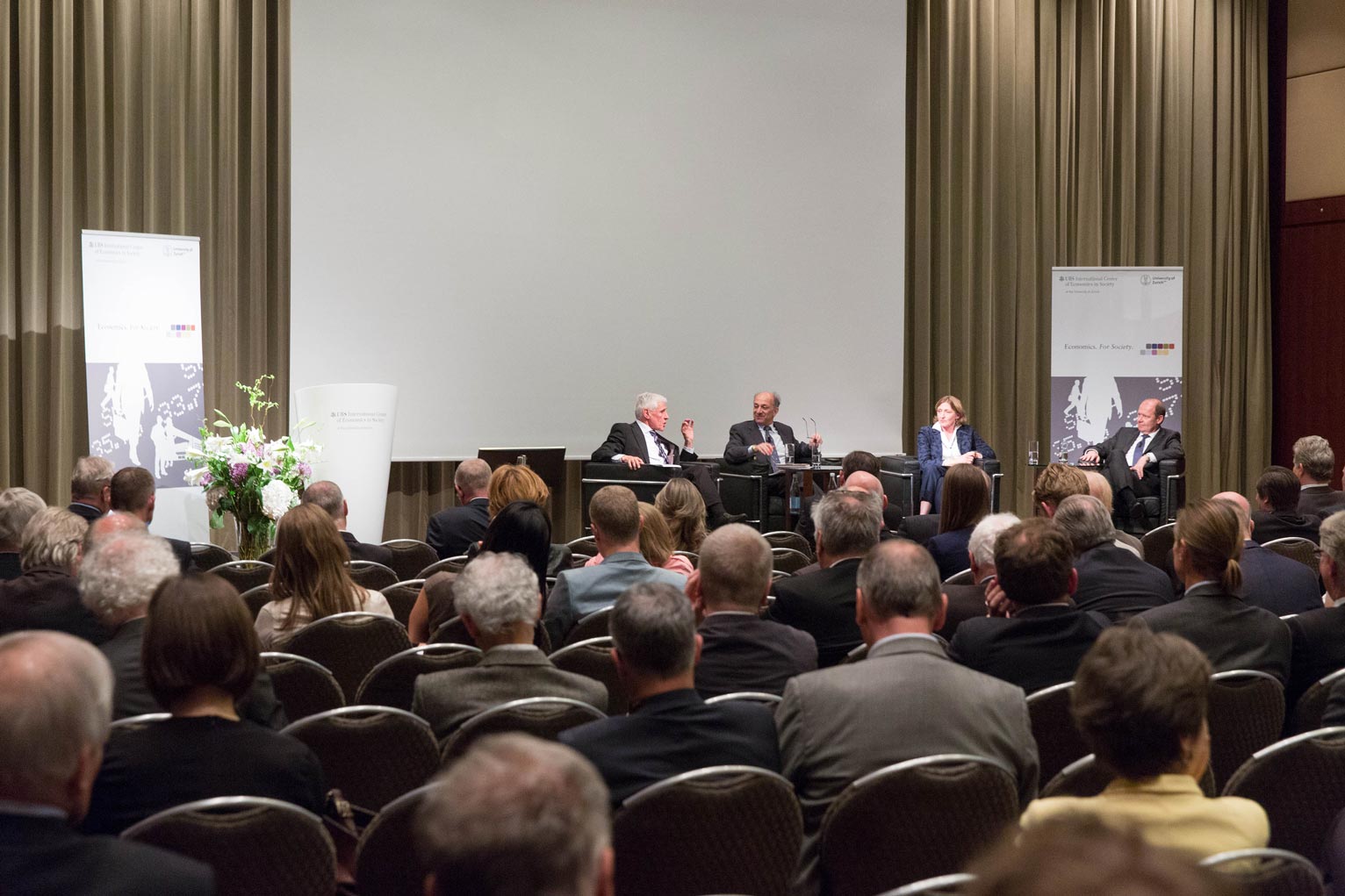
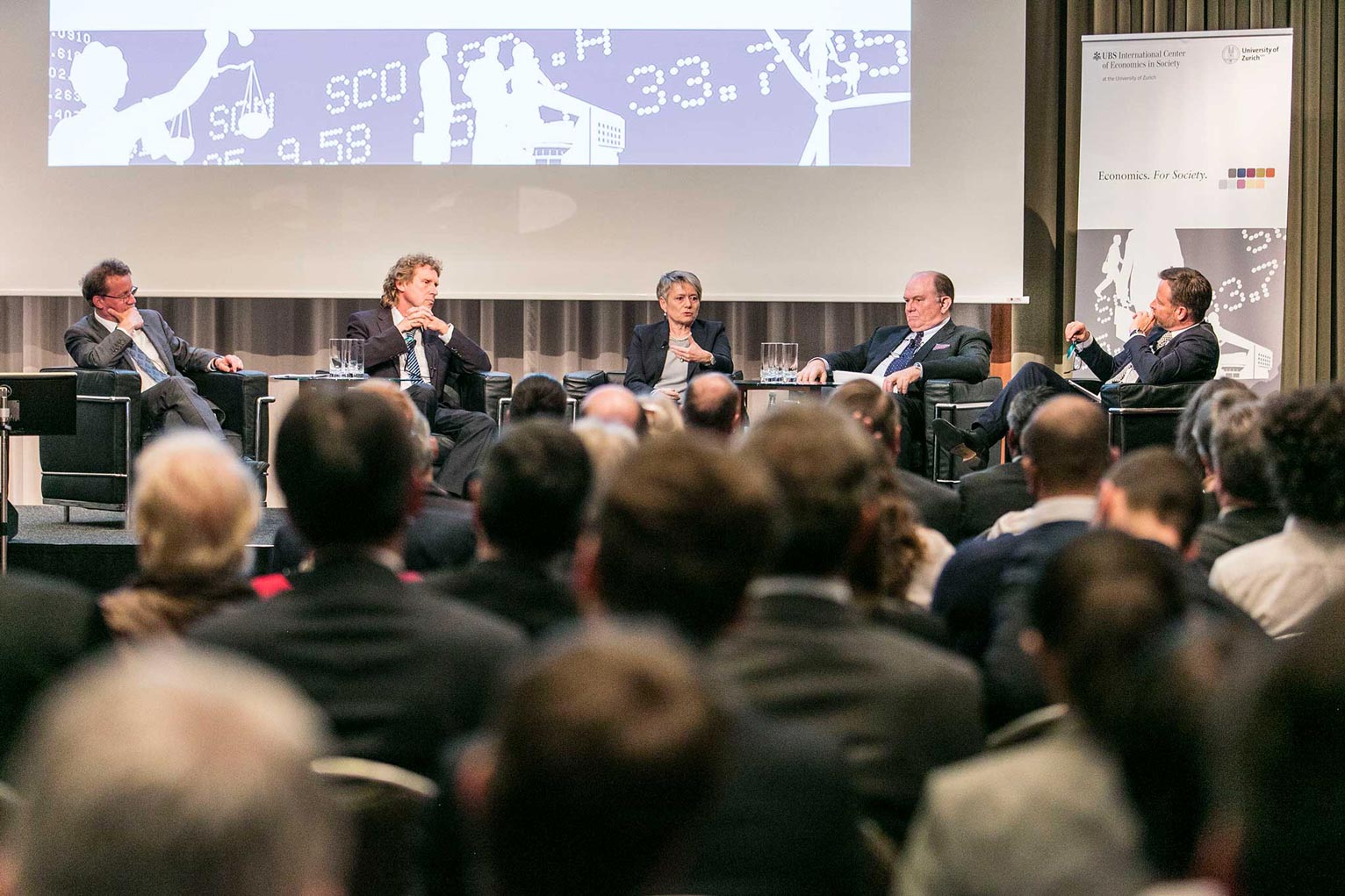
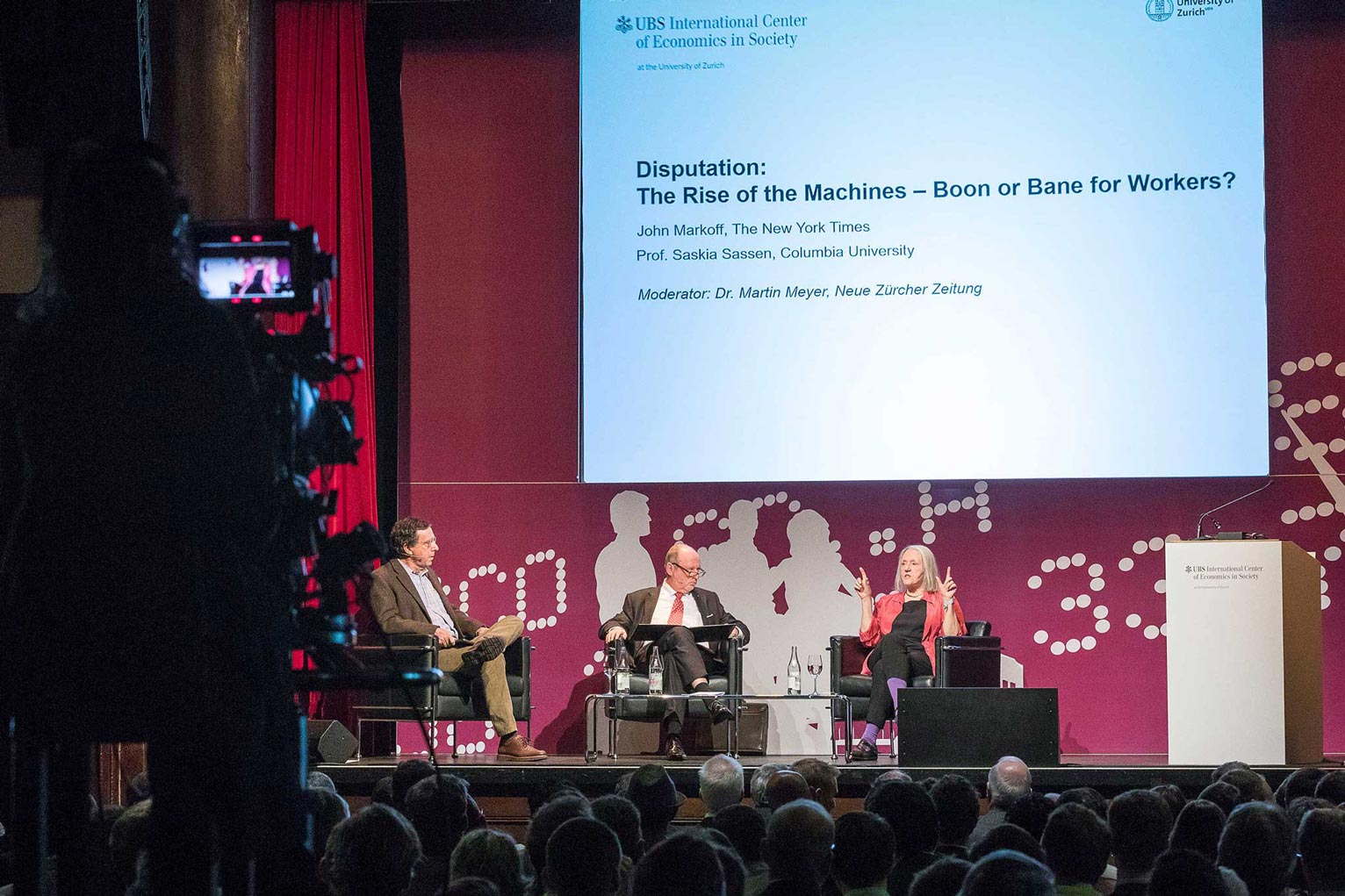
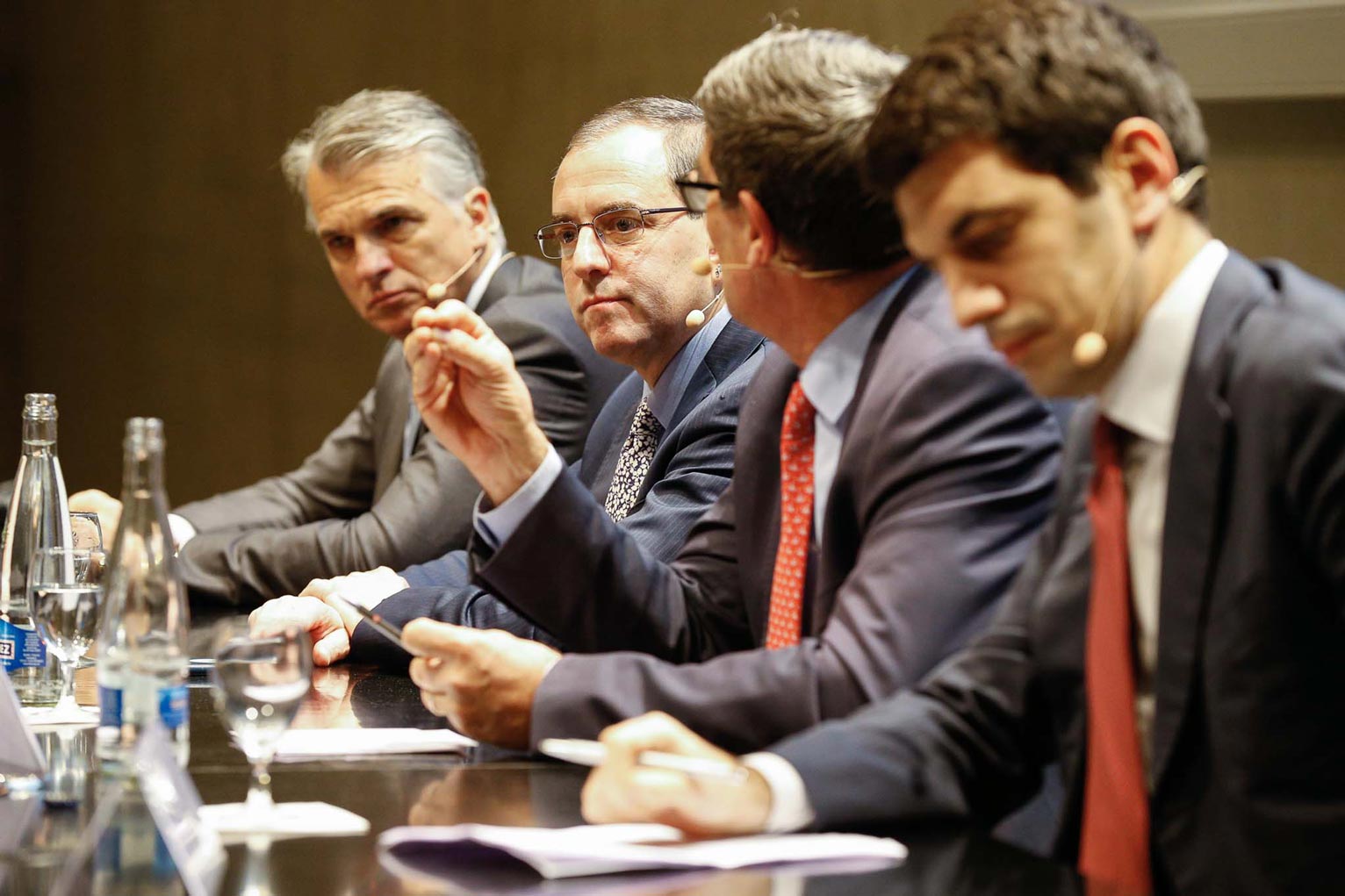
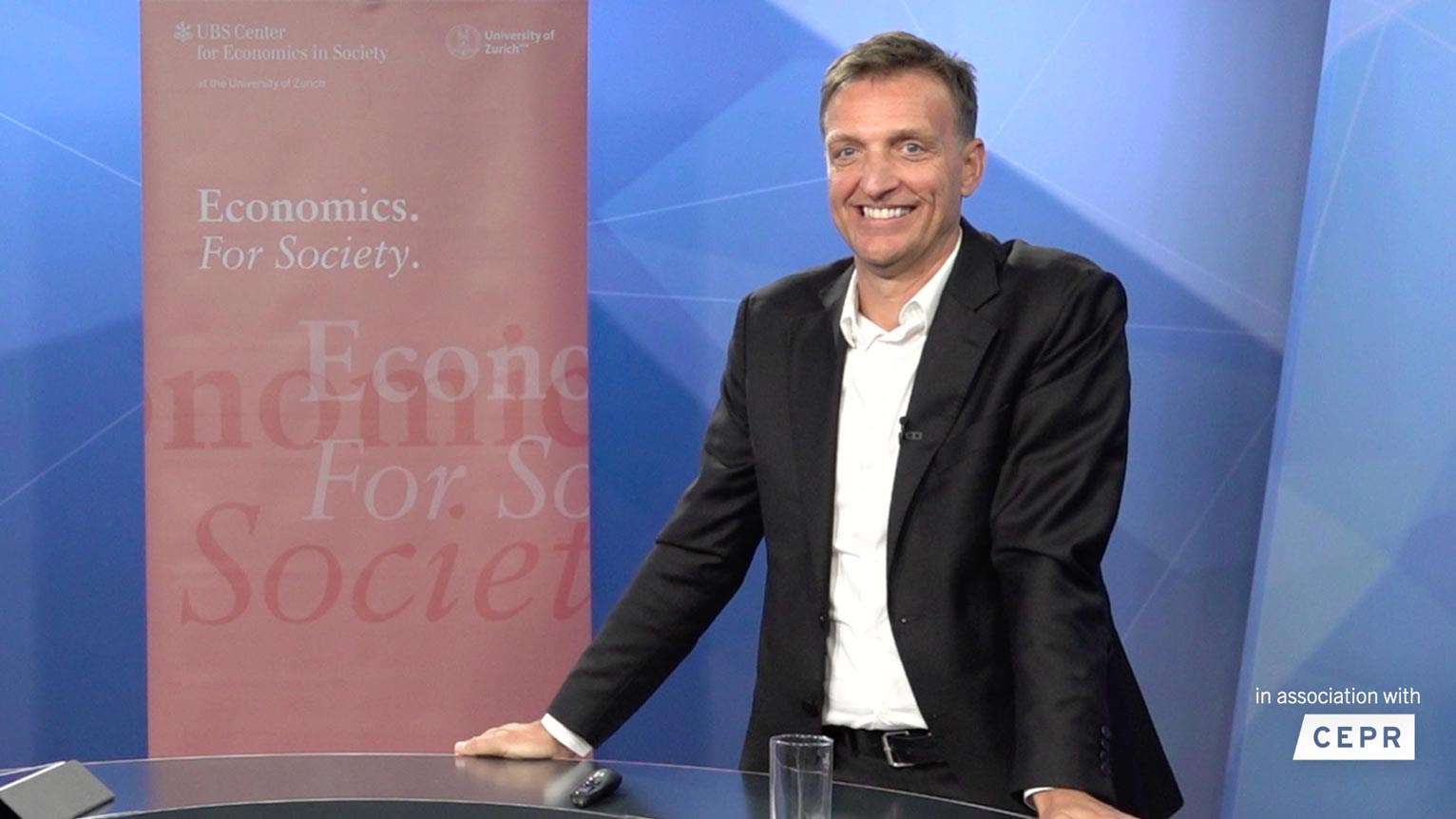
In the media
Will the covid-19 pandemic accelerate automation? Economist 22.4.2020 read
Männer sind kaum gefragt NZZ am Sonntag vom 3.11.2018 lesen
Wie halten wir superintelligente Computer in Schach? NZZ vom 15.11.2016 lesen
Kein Wunder, sind die Leute wütend NZZ vom 12.11.2016 lesen
Il futuro del lavoro fra robot e globalizzazione La Regione 30.11.2019 leggere
Il lavoro del futuro Radiotelevisione svizzera 28.11.2019 vedere